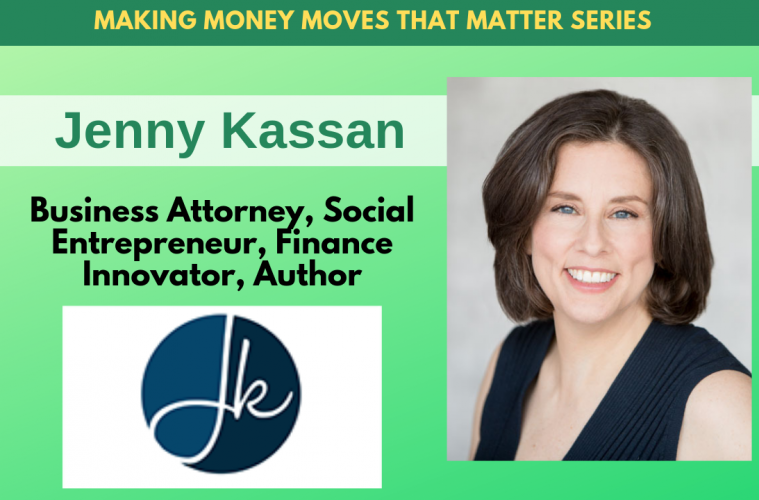Being an entrepreneur is not easy, but every year, hundreds of thousands of women in the U.S. decide to take a risk and start a new business. Unfortunately, many shy away from seeking outside funding because of the stories we hear about the risks of bringing on outside investors.
The good news is that we can raise capital on our own terms and not be subject to the whims of investors who care only about maximizing profits at any cost. Never trust anyone who tells you there is only one way to raise capital. There are infinite ways, and there is at least one that is right for you.
When you hear the word “investor,” what do you picture? Most people describe a man in a suit (or, say if you’re in Silicon Valley, maybe khakis and a button-down shirt) in a fancy office spending every workday combing through pitch decks, executive summaries, and due diligence, and barking tough questions at terrified entrepreneurs. These are the kinds of investors who will not allow you to raise capital on your own terms. They expect you to accept their terms, take them or leave them.
I call these folks professional investors. These are wealthy individuals and organizations, sometimes investing their own money and sometimes investing on behalf of others, and they come in many flavors: angel investors, venture capitalists, private equity funds, family offices, private foundations, wealth managers, and so on.
As an entrepreneur, if you think that professional investors are the only source of investment, of course you will quickly dismiss the idea of raising capital.
I hear many entrepreneurs say things like this:
- “Why would these people even consider investing in my business? I doubt I could give them what they’re looking for.”
- “I wouldn’t know how to get my foot in the door with these people or even how to find them.”
- “Don’t these investors want to take control of the businesses they invest in? Don’t they even sometimes fire the founder? I’m not ready to give up control.”
- “How could I stay true to my company’s mission and values if I had to focus all my efforts on giving my investors the highest possible financial returns at any cost?”
If you limit yourself to these professional investors, you are right to have these fears. These kinds of investors tend to follow a very specific investment model that is not a good fit for most businesses and may well not be a good fit for you. But there are many sources of investment capital, and there are investors out there who are right for you. Just because you don’t have the type of business that would be attractive to professional investors or you’re unwilling to accept the strings that come with their investments does not mean that you cannot raise hundreds of thousands and even millions of dollars from investors. There are investors who will be happy to support you on your own terms and not push you to sacrifice your goals and values.
Let’s bust some myths about what it means to raise money from investors. Here is some of the conventional wisdom that you’ve probably heard or read on the Internet:
1. You can only raise money from investors if you are going to grow your business very fast and have a “liquidity event” (sale of the company or initial public offering [IPO]) in which the investors make thirty to fifty times their initial investment.
2. Try to delay offering equity to investors for as long as you can because that is the most expensive money you can get.
3. Even though you have to give up a lot of ownership and control when you raise money, the good thing about it is that your investors have a lot of experience and contacts in your industry, so they can advise you and make great connections for you.
4. The investors set the terms of the investment—you are at their mercy.
5. If you raise money from investors, you have to give up control, and your investors become your boss.
6. Once you have investors, you must put their interests first, above those of all other stakeholders, or you risk being sued.
7. Investors consist of very wealthy individuals and organizations. They are all looking for basically the same thing, and you need to tailor your business to fit what they are looking for.
Although these statements are true for certain types of investors and investments, they are not universally true. In fact, in my experience (having helped clients raise millions of dollars and having raised several hundred thousand for my own business), I know that the following statements are also true:
1. The vast majority of investors are satisfied with a financial return that is much less ambitious than what angels and venture capitalists demand. (Note that studies of the venture capital industry demonstrate that actual returns are much lower than the hype would suggest.) And most investors consider a lot more than financial return when making investment decisions.
2. You can design any type of investment offering you want—it does not have to be “expensive.”
3. It is possible to raise capital (equity or debt) without giving up any control.
4. Investors can get healthy returns from steady-state businesses (i.e., ones that do not grow explosively). A liquidity event is not required for investors to get paid back.
5. The “smart money” that supposedly comes from professional investors (i.e., all that expertise that they supposedly have) is questionable. Some professional investors can be a huge asset to the companies they invest in; others will take the company in the completely wrong direction. The founders often know a lot more about the right direction to take their business than an outside investor does.
6. It is possible to design a company and its financing strategy in a way that reduces the likelihood of lawsuits for failure to maximize investor return.
7. The universe of investors encompasses far more than angels and venture capitalists, and each investor is unique.
What entrepreneurs need is funding that does not require sacrificing our personal credit rating, our health, our energy, or our well-being. Many of us turn to our personal resources and assets as a source of business funding. We may use personal credit cards, get loans from family members, take out second and third mortgages, drive Uber, or list our spare rooms on Airbnb. We also operate on a very tight budget. We buy low-quality equipment, try to build our own websites, forgo a salary, put a moratorium on family dinners out, and generally tighten our belts for the sake of our businesses.
But we owe it to ourselves, our families, and all the lives we have the potential to impact with our business to figure out how to get the resources we need for our businesses to thrive. And the sooner we all start, the better. When you do this, you will be part of a growing movement that is still relatively small. This is the movement of mission-driven entrepreneurs who refuse to try to fit themselves into a mold that doesn’t feel aligned with their deepest values.
Entrepreneurs are some of the most creative and innovative people on the planet, so why should we accept a standardized, cookie-cutter funding model? Especially if this model forces us to sacrifice the very reasons we started our businesses in the first place. There is nothing more important than for you to live your dream and create a business that you love.
Go out and get the capital you need to make it happen. And do it on your terms.
Download two free chapters of Jenny Kassan’s book, Raise Capital on Your Own Terms, here.
Jenny Kassan is a business attorney with decades of experience. She is also a certified transformational coach, social entrepreneur, and finance innovator. Her formula for mission-aligned capital raising has helped diverse entrepreneurs throughout the country raise millions of dollars on their own terms.



